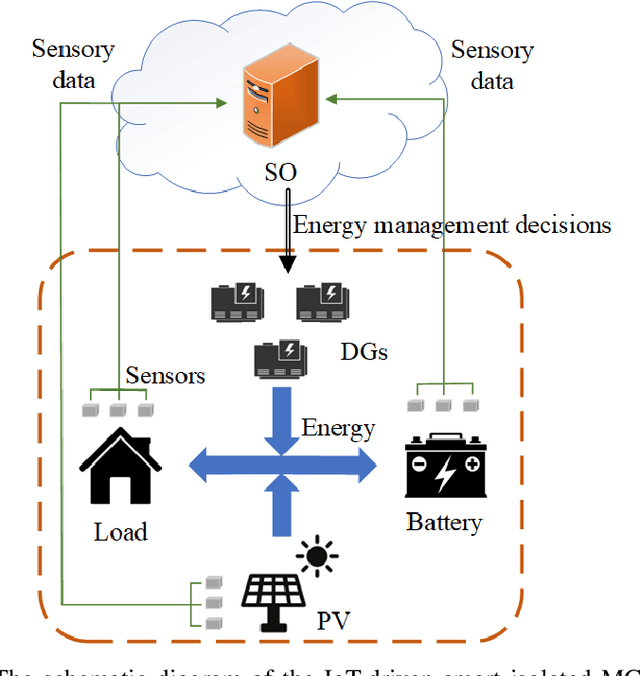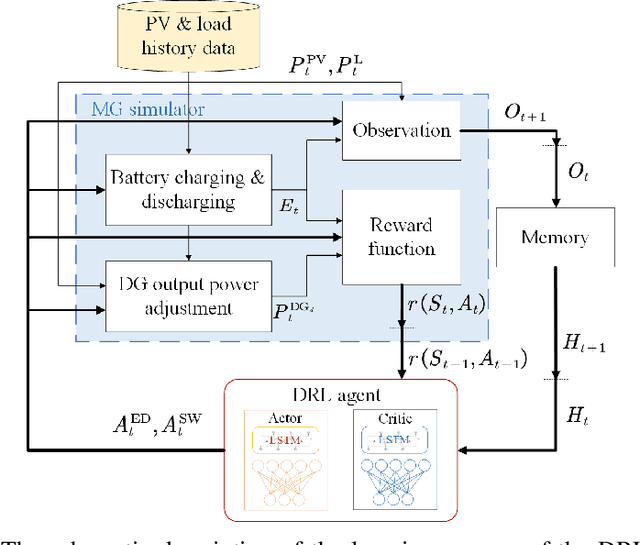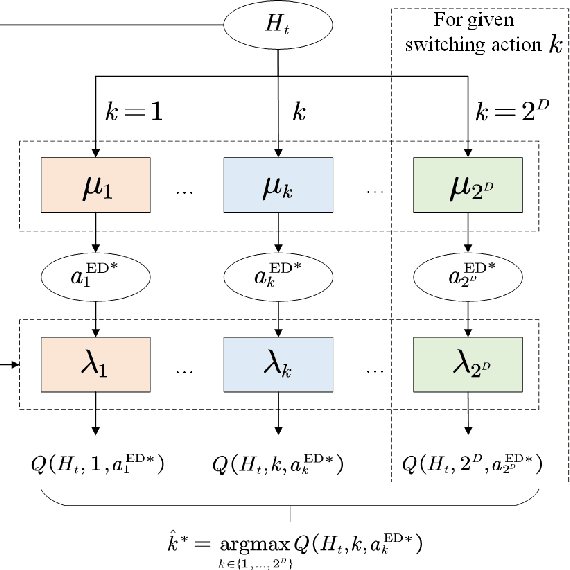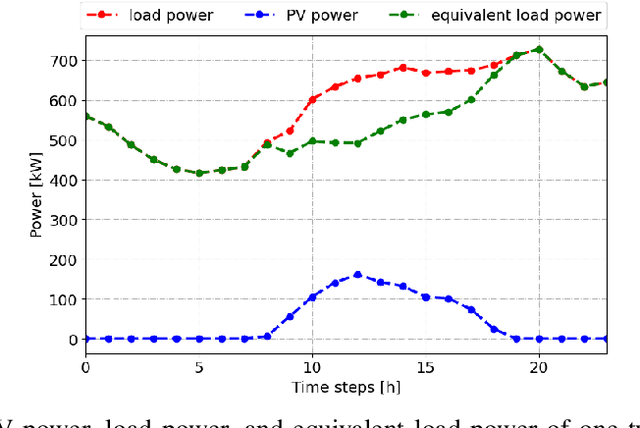Optimal Scheduling in IoT-Driven Smart Isolated Microgrids Based on Deep Reinforcement Learning
Paper and Code
Apr 28, 2023



In this paper, we investigate the scheduling issue of diesel generators (DGs) in an Internet of Things (IoT)-Driven isolated microgrid (MG) by deep reinforcement learning (DRL). The renewable energy is fully exploited under the uncertainty of renewable generation and load demand. The DRL agent learns an optimal policy from history renewable and load data of previous days, where the policy can generate real-time decisions based on observations of past renewable and load data of previous hours collected by connected sensors. The goal is to reduce operating cost on the premise of ensuring supply-demand balance. In specific, a novel finite-horizon partial observable Markov decision process (POMDP) model is conceived considering the spinning reserve. In order to overcome the challenge of discrete-continuous hybrid action space due to the binary DG switching decision and continuous energy dispatch (ED) decision, a DRL algorithm, namely the hybrid action finite-horizon RDPG (HAFH-RDPG), is proposed. HAFH-RDPG seamlessly integrates two classical DRL algorithms, i.e., deep Q-network (DQN) and recurrent deterministic policy gradient (RDPG), based on a finite-horizon dynamic programming (DP) framework. Extensive experiments are performed with real-world data in an IoT-driven MG to evaluate the capability of the proposed algorithm in handling the uncertainty due to inter-hour and inter-day power fluctuation and to compare its performance with those of the benchmark algorithms.
 Add to Chrome
Add to Chrome Add to Firefox
Add to Firefox Add to Edge
Add to Edge